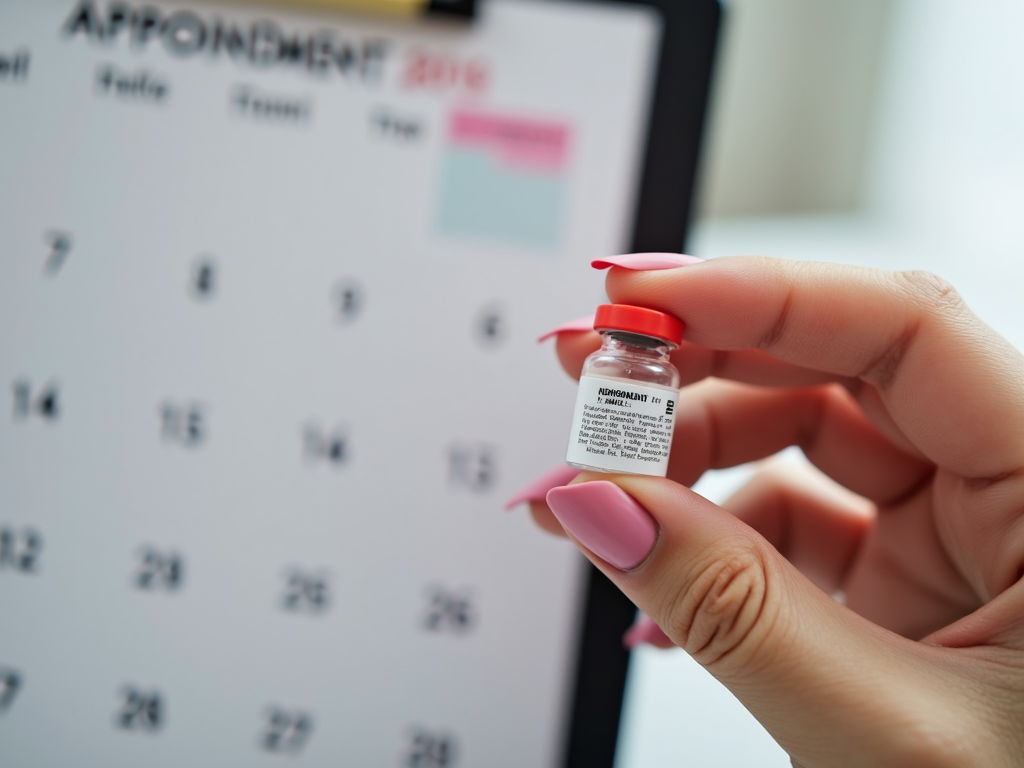Fertility Treatments for Women Over 40: What to Expect
May 4, 2025, 7:13 a.m.
As women age, fertility treatments become more complex. This article explores what women over 40 can expect from fertility treatments, including ovarian stimulation and the latest advancements in reproductive medicine.

Understanding Fertility Challenges for Women Over 40
As women age, their fertility naturally declines. This is due to a decrease in the number and quality of eggs in the ovaries. By the time a woman reaches 40, her chances of conceiving naturally each month are significantly lower compared to when she was in her 20s or 30s. Additionally, the risk of miscarriage and chromosomal abnormalities increases with age.
For women over 40, fertility treatments can offer hope, but it's important to understand the unique challenges and what to expect from these treatments.

Types of Fertility Treatments for Women Over 40
There are several fertility treatments that women over 40 can consider, including:
- Ovarian Stimulation: This involves using medications to stimulate the ovaries to produce multiple eggs, which can then be retrieved and used in treatments like in vitro fertilization (IVF).
- In Vitro Fertilization (IVF): IVF is a process where eggs are retrieved from the ovaries, fertilized with sperm in a laboratory, and then transferred back into the uterus.
- Intrauterine Insemination (IUI): IUI involves placing sperm directly into the uterus during ovulation to increase the chances of fertilization.
- Donor Eggs: For women over 40 with poor egg quality, using donor eggs from a younger woman can be an option.
- Preimplantation Genetic Testing (PGT): PGT can be used to screen embryos for chromosomal abnormalities before they are transferred during IVF.
Each of these treatments has its own set of benefits and considerations, and the best option will depend on individual circumstances.

Ovarian Stimulation 101: What Older Women Need to Know
Ovarian stimulation is a critical component of many fertility treatments, especially for women over 40. The goal is to stimulate the ovaries to produce multiple eggs, which can then be retrieved and used in treatments like IVF.
For older women, ovarian stimulation can be more challenging due to the natural decline in ovarian reserve. This means that the ovaries may not respond as well to stimulation medications, and fewer eggs may be produced.
However, advancements in reproductive medicine have led to the development of more effective stimulation protocols tailored to older women. These protocols often involve higher doses of medications and may include additional treatments to improve egg quality.
It's important for women over 40 to work closely with their fertility specialist to develop a personalized stimulation plan that takes into account their individual needs and medical history.

Advancements in Reproductive Medicine for Older Women
Reproductive medicine is constantly evolving, and there have been several advancements that can benefit women over 40. Some of these include:
- Improved Ovarian Stimulation Protocols: As mentioned earlier, new protocols have been developed to better stimulate the ovaries in older women, increasing the chances of successful egg retrieval.
- Preimplantation Genetic Testing (PGT): PGT allows for the screening of embryos for chromosomal abnormalities, which is particularly important for older women who are at higher risk of producing embryos with genetic issues.
- Time-Lapse Imaging: This technology allows embryologists to monitor the development of embryos in real-time, helping to select the healthiest embryos for transfer.
- Mitochondrial Replacement Therapy: This experimental treatment aims to improve egg quality by replacing faulty mitochondria with healthy ones from a donor.
While some of these advancements are still in the early stages, they offer hope for improving fertility treatment outcomes for women over 40.

What to Expect During Fertility Treatments
Fertility treatments can be physically and emotionally demanding, especially for women over 40. Here's what to expect:
- Initial Consultation: The process begins with a thorough evaluation by a fertility specialist, including medical history, physical examination, and diagnostic tests.
- Treatment Planning: Based on the evaluation, a personalized treatment plan is developed. This may involve ovarian stimulation, IVF, IUI, or other treatments.
- Monitoring: During ovarian stimulation, regular monitoring is required to track the response to medications and determine the optimal time for egg retrieval.
- Egg Retrieval: For IVF, eggs are retrieved from the ovaries using a minor surgical procedure.
- Fertilization and Embryo Transfer: In IVF, eggs are fertilized with sperm in a laboratory, and the resulting embryos are transferred back into the uterus.
- Waiting Period: After embryo transfer, there's a waiting period of about two weeks before a pregnancy test can be taken.
Throughout the process, it's important to have a strong support system and to be prepared for the emotional ups and downs that can come with fertility treatments.

Success Rates and Influencing Factors
Success rates for fertility treatments decrease with age, and women over 40 generally have lower success rates compared to younger women. However, individual outcomes can vary widely based on several factors, including:
- Ovarian Reserve: The number and quality of eggs remaining in the ovaries.
- Overall Health: Conditions like obesity, diabetes, and thyroid disorders can impact fertility.
- Lifestyle Factors: Smoking, alcohol consumption, and stress can affect treatment outcomes.
- Quality of Sperm: The quality of the partner's sperm can also play a role in the success of treatments.
It's important for women over 40 to have realistic expectations and to discuss their individual chances of success with their fertility specialist.

Tips for Women Over 40 Undergoing Fertility Treatments
- Choose the Right Fertility Clinic: Look for a clinic with experience in treating older women and a good track record of success.
- Optimize Your Health: Maintain a healthy weight, eat a balanced diet, exercise regularly, and avoid smoking and excessive alcohol consumption.
- Manage Stress: Fertility treatments can be stressful, so it's important to find ways to manage stress, such as through yoga, meditation, or counseling.
- Consider Support Groups: Joining a support group for women undergoing fertility treatments can provide emotional support and valuable insights.
- Be Open to Different Options: Be prepared to explore different treatment options and to adjust your plan as needed based on your response to treatments.

Fertility treatments for women over 40 can be challenging, but advancements in reproductive medicine offer hope. By understanding what to expect, working closely with a fertility specialist, and taking steps to optimize health and well-being, women over 40 can increase their chances of success.